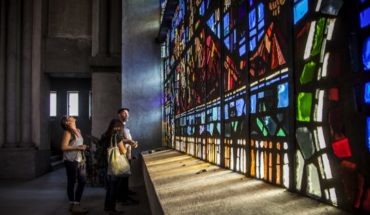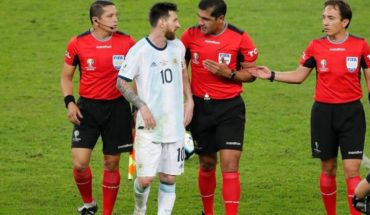On 3 December, the International Day of Disability was celebrated, which was established in 1992 by the United Nations General Assembly, with the aim of promoting the rights and well-being of “all persons with disabilities without distinction by type and/or severity”. This is a day to raise awareness and give visibility to this human group.
Chile ratified the Convention on the Human Rights of Persons with Disabilities and its optional protocol on 29 July 2008, taking on a commitment to promote its independence and autonomy, as well as the elimination of all forms of discrimination and violation, such as infrastructure and cultural barriers, ensuring equal opportunities in all areas of society, in a decent, democratic and inclusive country, without the historical division between “disabled and non-disabled”.
This year, the focus of this celebration, according to the United Nations, is to empower people with disabilities to participate and lead the 2030 agenda for sustainable development. A fact that seems very distant for our country, especially if we think that since the ratification of this convention, little or nothing has been done to change the current “model of charity” to treat disability and move towards a human rights model.
Our political class reached an agreement and it is possible that in Chile we can build our own constitution. However, there are still doubts about how this process will take place, and in my mind only a question is spinning: Who will represent me at the dialogue tables? Historically, people with disabilities have been seen as objects of charity, without autonomy to make our own decisions. With sadness, I can assure you that in our Chile there is no real awareness of the high degree of exclusion, marginalization and poverty in which we live people with disabilities. Socially we are the most “forgotten of the forgotten”, almost invisible in the eyes of our society. People who are often remembered only by our families, and sometimes by those who feel the need to be supportive as in Telethon days.
As a woman with a visual impairment, I have lived the discrimination and exclusion that I speak of for almost 20 years, a reality that before having glaucoma was unknown and i was stranger, and that by various circumstances has been my experience since my 26 years. A difficult time, perhaps the most complicated in my life, a moment of shock when I was trying to understand what was happening to me. There are so many insecurities and challenges that, of course, I felt afraid of change that requires living differently, we are human and it is part of our nature to feel fear when faced with the unknown. Although I struggled to accept it my vision was no longer the same, and I had to relearn to be fully functional and independent again.
But how do you stop again and continue your life if you feel there’s no hope? How do you find your way if you think all the doors are closing? How do you reintegrate into a society that understands little or nothing about your problem?
Today I am very concerned about what will happen to the more than 200 affected with eye trauma, who are probably feeling the same as I did 20 years ago. Young people who with deep hopelessness will find a Chile that will look at them with distance and sorrow, and who will possibly forget them when they are no longer news. What happens when they discover that they have a disability and that they live in a country where it is inseparable from poverty? A country where there are no adequate public policies to ensure access to rehabilitation, education, work, social participation and an independent life. For this reason, in times when everyone is clamoring for a fairer and more inclusive Chile, we cannot forget that 16.7% who has some type of disability, whether mild, moderate or severe.
The figures are eloquent; We are almost 3 million people with disabilities, of whom 25.5% live in poverty with an income equal to or less than 70,543 Chilean pesos, compared to 14.4% of the rest of the population. We have a very low level of access to higher education (9.1% complete higher education) and work (36.4% of people with mild or moderate disabilities have formal or informal work, compared to 69% of the rest of the population who are working). However, 80% of us say they are trained to work and/or study if we were offered an opportunity to do so.
For now, it seems impossible to have a real job opportunity, as the state and Chileans do not understand or accept that Persons with Disabilities are different, but we can interact in different ways with our physical environment, to the extent that we have the necessary preparation and assistive technologies. We need to break down cultural barriers that stigmatize us as people with fewer capabilities, as well as infrastructure barriers that restrict our mobility and access to information. I am convinced that we are a powerful, creative and necessary workforce for our environment and our country, as well as a necessary voice in this new social pact.
The content poured into this opinion column is the sole responsibility of its author, and does not necessarily reflect the editorial line or position of El Mostrador.





